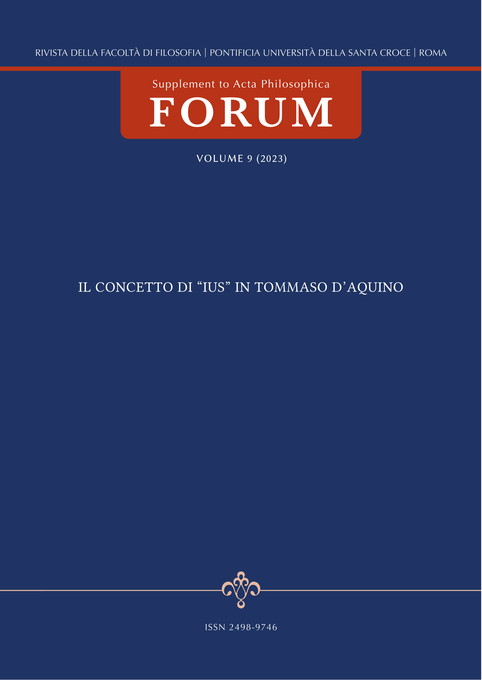The Common Good and its Primacy
Charles De Koninck's (1906-1965) Thomistic View
DOI:
https://doi.org/10.17421/2498-9746-09-09Keywords:
Common Good, Person, Charles De Konick, Jacques Maritain, ThomismAbstract
This article deals with the doctrine of the common good elaborated by the Canadian Thomist Charles De Koninck (1906-1965). In 1943, he wrote De la primauté du bien commun contre les personnalistes. This book generated a controversy involving Yves Simon, Ignatius Eschman, and, at least indirectly, Jacques Maritain. Firstly, the author stresses how De Koninck defended the idea of the primacy of the common good, presenting it as a universal good shared by each singular member of a community. So, the common good is not an "alien good" the individual good is sacrificed to, but what the individual good is enlightened by. Then, the article analyses De Koninck's conception of the person and the link between the promotion of the correct idea of the common good and the primacy of speculative reason. The final part is devoted to some points concerning which De Koninck's Thomistic proposal can provide valid criteria for addressing some of the challenges we face today regarding the way we conceive the common good: multiple forms of global crisis, the true promotion of human intelligence, and ecology.



